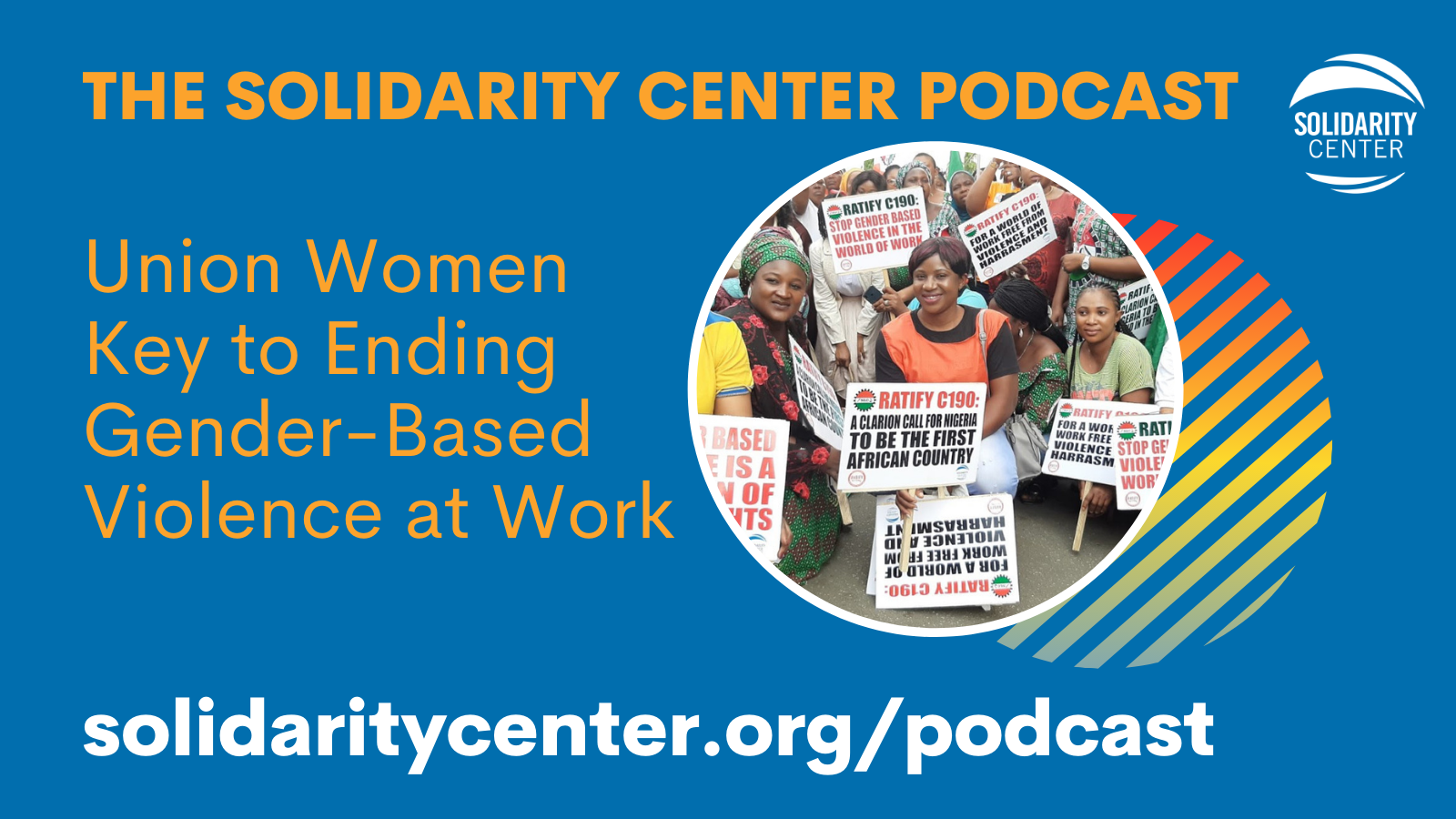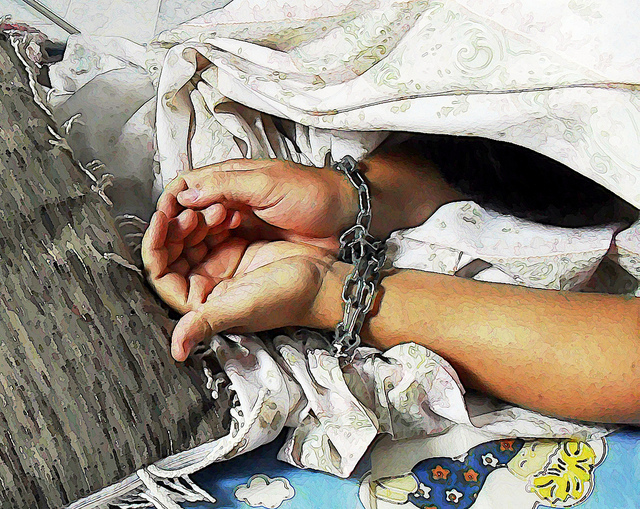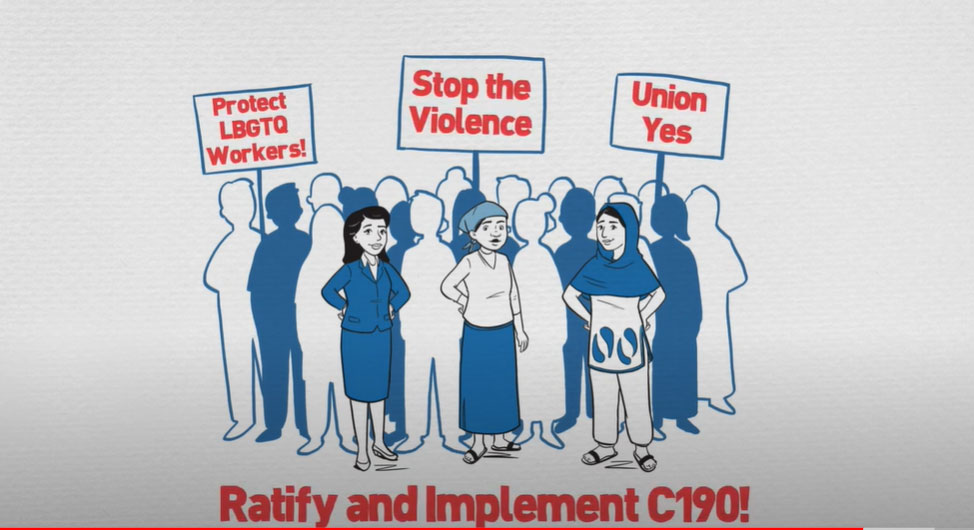For more than 10 years, union women who work at factories, on farms, in restaurants, taxis and offices campaigned for an international treaty to end gender-based violence at work. In 2019, they achieved a huge success when the International Labor Organization (ILO)...
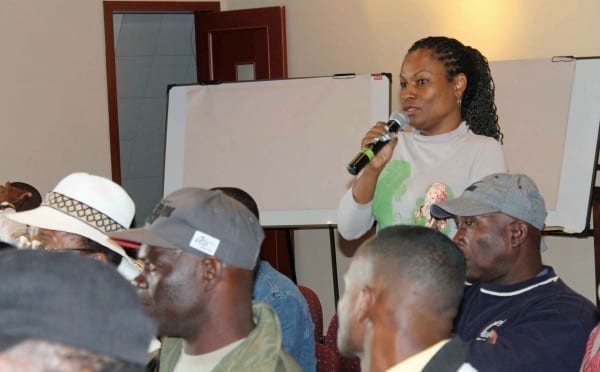
The Solidarity Center supported the development of the Afro-Colombian Labor Council, the first national organization in Colombia dedicated to improving the working conditions of Afro-descendants. Credit: Solidarity Center/Rhett Doumitt
The Solidarity Center engages with unions and their allies through an analysis and practice of equality, radical inclusion and intersectionality that is explicitly feminist, anti-racist, pro-equality, pro-worker, pro-migrant and class conscious.
The Solidarity Center designs and implements strategies to confront the multiple and intersecting forms of oppression that contribute to economic structures in which women and other groups of workers are devalued and excluded from economic and social equality. This requires a conscious effort to examine how oppressive forces play out throughout the global labor movement with a commitment to dismantle these systems. Explicit in this work is the understanding that the agency and leadership of the most marginalized workers are key components of decent work and economic justice for all.
The Solidarity Center has assisted unions and their allies in countries such as Cambodia, Colombia, Georgia, Honduras, Indonesia, Kyrgyzstan, Morocco, Nigeria, Nicaragua, South Africa and Tunisia to ensure meaningful participation of historically excluded and marginalized workers in unions and other democratic structures.
See related factsheets, videos and reports.
In Morocco, the Solidarity Center supported a multi-year effort to build women worker power and gender equality which led to the inclusion of women workers during negotiations for the first collective bargaining agreement in the informal agriculture sector. In Colombia, the Solidarity Center supported the development of the first national organization dedicated to improving the working conditions of Afro-Colombians.
In Kyrgyzstan, Morocco and Tunisia, Solidarity Center is assisting in strengthening union efforts to promote inclusion of individuals with disabilities. In Nicaragua, Solidarity Center supports domestic workers as they address inclusion of LGBTQI union members to ensure they can represent themselves, articulate their priorities and increase their leadership opportunities and visibility.
The Solidarity Center:
- Conducts research and awareness-raising to challenge systems of oppression and inform inclusive approaches to building worker power across social identities at all levels
- Supports representative, inclusive leadership in our partner organizations
- Engages in cross-movement work to combat tools of oppression that impact women, including gender-based violence and harassment at work
- Brings together unions and community groups to identify shared socioeconomic struggles, analyzes how those struggles are linked to systemic racism and implements organizing, legal and advocacy strategies to collectively overcome the oppression that entraps workers in poverty
- Advocates for economic policies that uproot systemic discrimination and exploitation in labor markets.
Report: Trafficking Persists in Agriculture
The trafficking of agriculture workers, including children, is widespread globally, and “practices of exceptionalism” limit workers’ rights to freedom of association, organizing and collective bargaining, according to a new report on trafficking in persons in...
Leaders: Gender-Based Violence and Harassment Requires Worker-Led Solutions
Labor leaders, policymakers and stakeholders from around the world discussed efforts to prevent gender-based violence and harassment at the workplace at a panel discussion, “Ending Violence and Harassment in the World of Work” on Thursday, April 7. The panel was part...
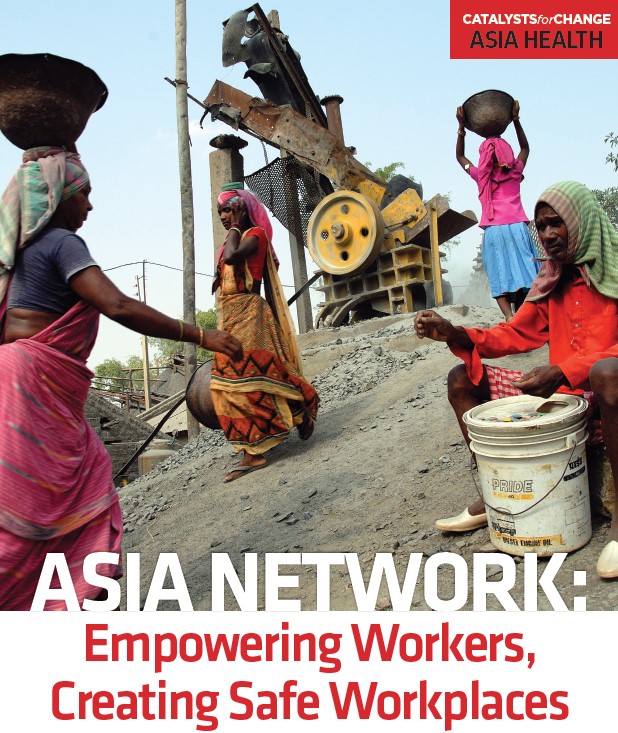
Asia Network: Empowering Workers, Creating Safe Workplaces
Millions of workers in Asia often risk their lives in unsafe and unhealthy workplaces. Through its network of more than 200 regional and national organizations in 14 Asian countries, including sector, national and global unions, ANROEV achieved concrete, worker-led...
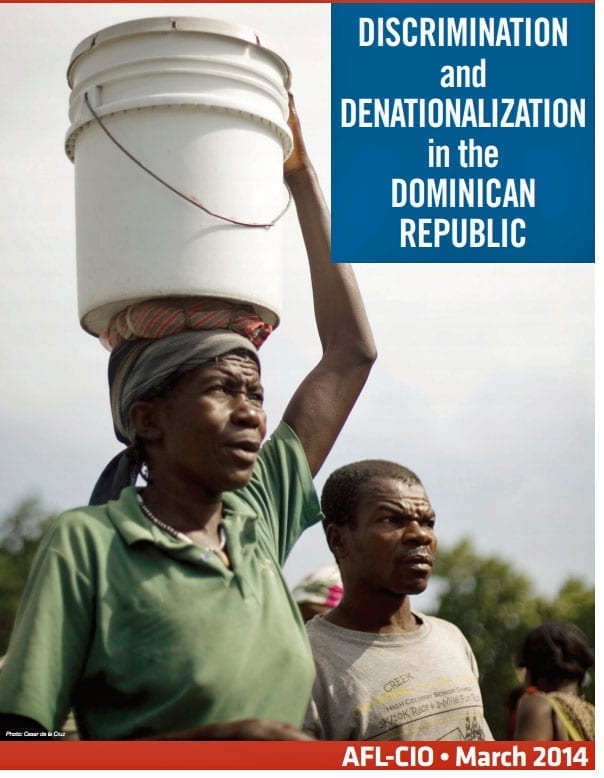
Discrimination and Denationalization in the Dominican Republic
A September 2013 Dominican court ruling taking away citizenship from many migrants means they will be excluded from any activity that requires official identification, including working in the formal sector, attending school, opening a bank account, accessing health...
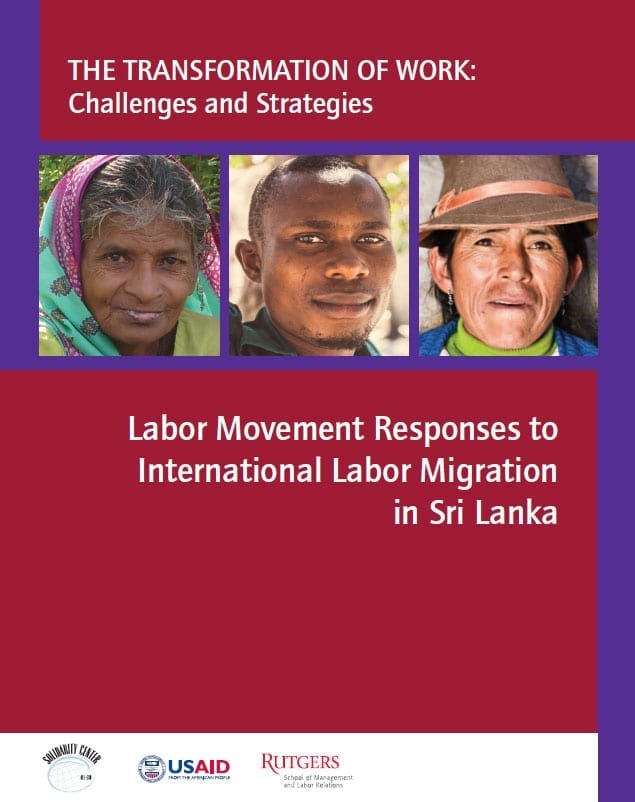
Labor Movement Responses to International Labor Migration in Sri Lanka
This report looks at the political and economic context within which Sri Lankan unions have attempted to respond to migrant workers, unions' role in the key governance and policy mechanisms that pertain to labor migration, and the way the Sri Lankan labor movement...
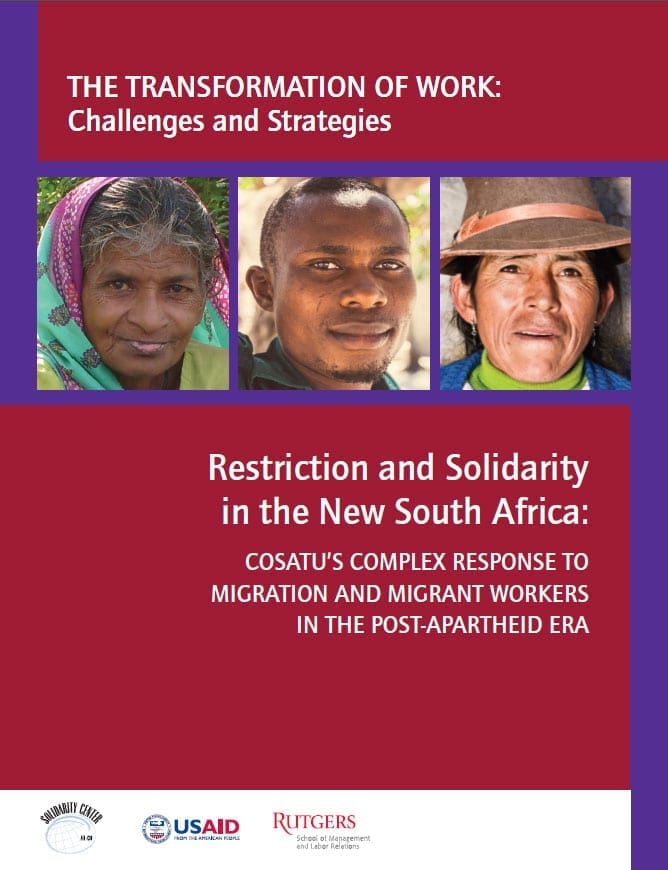
Restriction and Solidarity in the New South Africa
This report look at South African labor’s complicated engagement with migrant workers by examining the migration policy debate, labor’s response to the xenophobic attacks of 2008 and two organizing campaign in the agricultural sector. It sheds light on how labor...
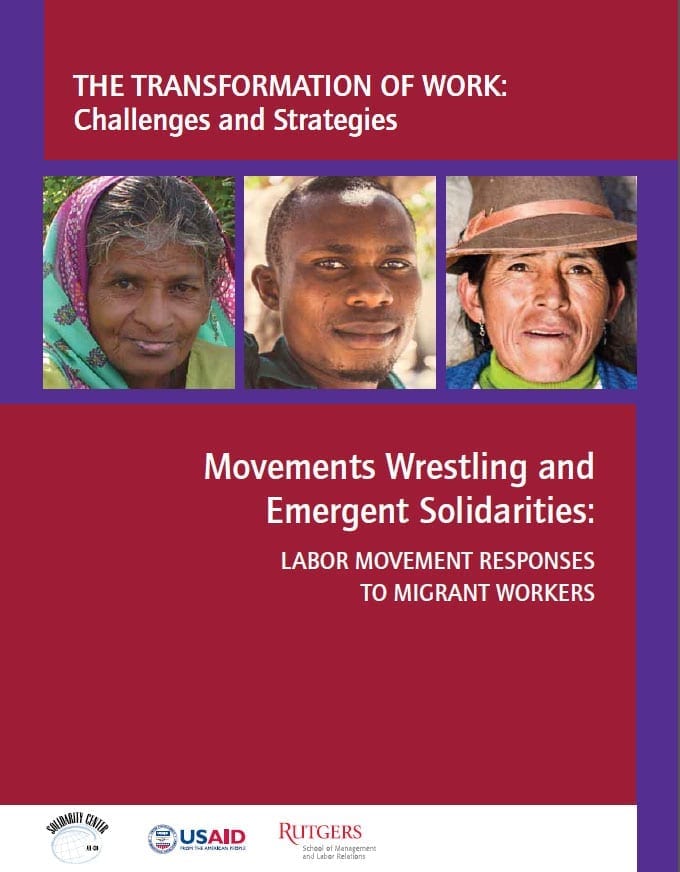
Movements Wrestling and Emergent Solidarities: Labor Movement Responses to Migrant Workers
This report synthesizes a two-year project. Part one consisted of desk and case study research conducted by telephone in Jordan and the Dominican Republic looking into cases where unions had made significant changes in their approach to migrant worker organizing. Part...
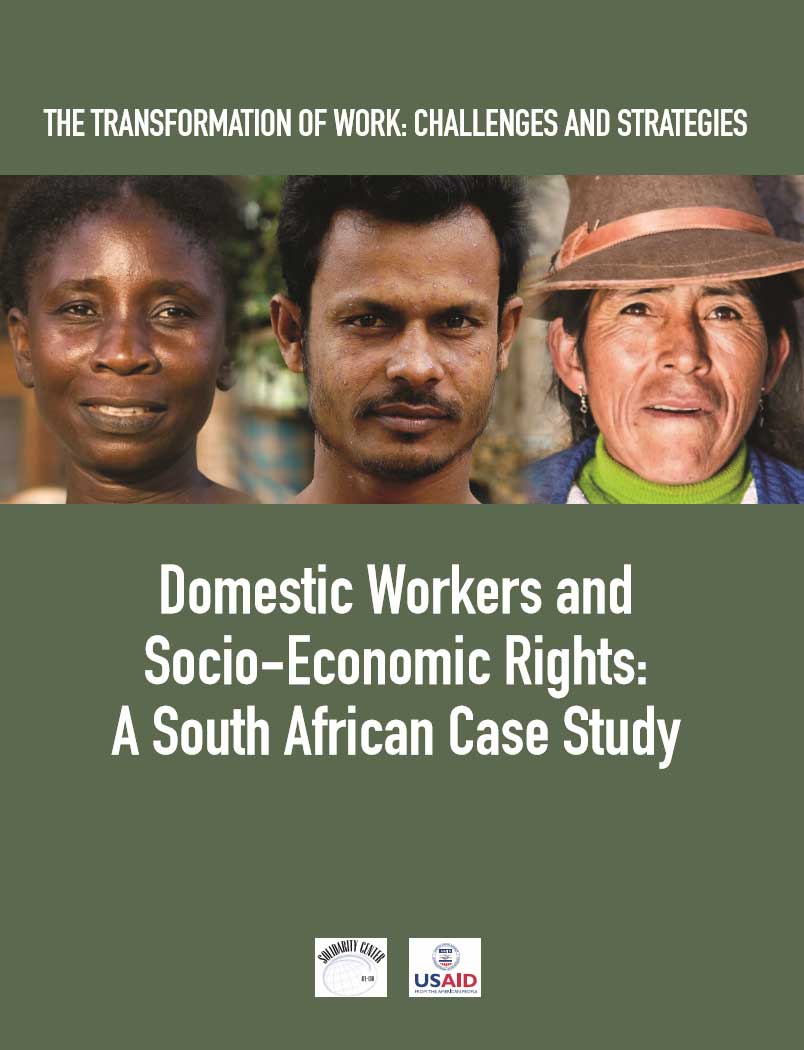
Domestic Workers and Socioeconomic Rights: A South African Case Study (2013)
This report explores the challenges of empowering domestic workers in South Africa through the traditional trade union focus on worker rights, democratic voice and collective action. This Solidarity Center report is part of a multiyear research project, funded by the...

